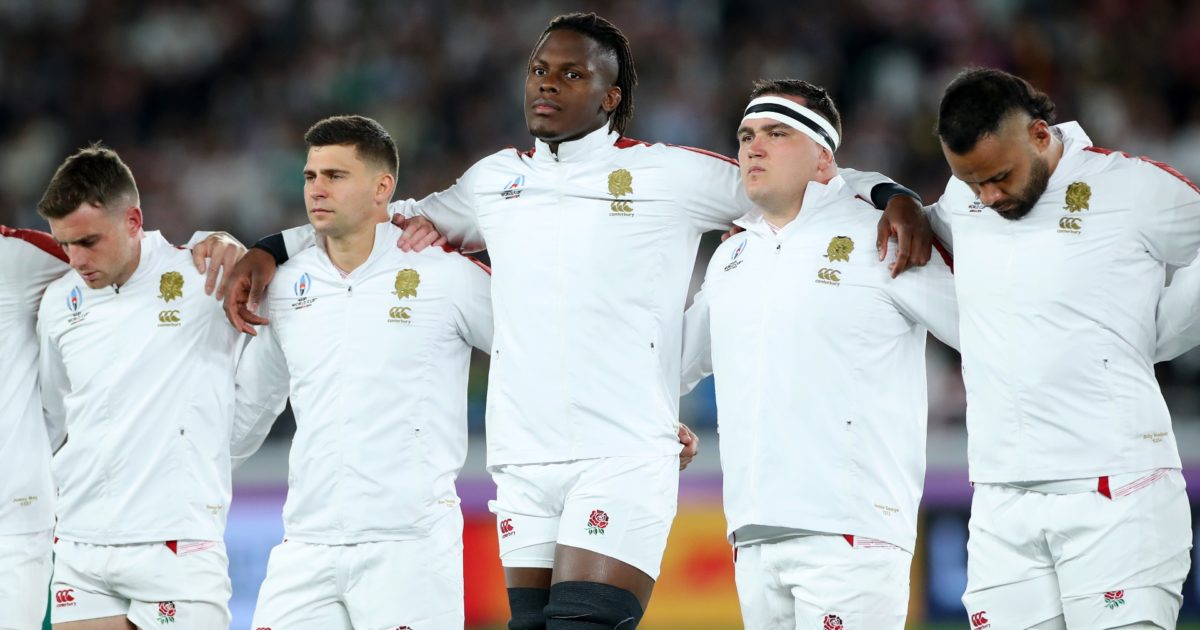Martin Offiah has had his say on possible Swing Low, Sweet Chariot RFU ban

Martin Offiah, who was the reason for the first signing of Swing Low, Sweet Chariot at Twickenham, has revealed he would not support the banning of the song despite its links to slavery, the former rugby league great instead claiming he was initially proud to be associated with it.
Before moving to league, Offiah was playing in the 1987 Middlesex Sevens at England Rugby HQ when fans started hailing his try-scoring ability with what is believed to be the first use of Swing Low at Twickenham.
Written in the mid-19th century by Wallace Willis, who was a black American slave, Swing Low, Sweet Chariot was said to be under review at the RFU after a spokesperson admitted on Thursday that the England rugby organisation needed to grow awareness about the song’s origins.
“We need to do more to achieve diversity and we are determined to accelerate change and grow awareness. The Swing Low, Sweet Chariot song has long been part of the culture of rugby and is sung by many who have no awareness of its origins or its sensitivities. We are reviewing its historical context and our role in educating fans to make informed decisions.”
Offiah entered the heated debate on Friday, telling BBC Radio’s 5 Live Breakfast: “It is a very emotive song and stirs up feelings. That is probably something to do with its history and that history is probably not that well known by a lot of people in the UK.
"I wouldn't support banning the song. That makes the song more divisive.''
The Rugby Football Union is reviewing England fans use of Swing Low, Sweet Chariot.@martinoffiah told #5LiveBreakfast that it's more about educating the fans.
Read more at https://t.co/qu7QgHTd6S pic.twitter.com/jNVNibUTQ3
— BBC Radio 5 Live (@bbc5live) June 19, 2020
“I know the RFU are planning to review this song and I champion reviewing it, but I wouldn’t support the banning of such a song. When you do try to ban things like that it makes the song more divisive. We are seeing it being sung by football fans. Stoke City – when a manager referred to them as rugby players. We have to be careful here. Education, information needs to be disseminated.
“I had a conversation with Brian Moore (ex-England hooker) a few years ago and not many people singing that song at Twickenham know about its history.
“I didn’t know the history of the song and I was playing in the Middlesex Sevens in 1987. I was only informed this year by the RFU that it was the first time it was ever sung at Twickenham. The curator of the museum at Twickenham found this footage on the BBC in the archives.
“I was proud to be associated with the song but I do feel it is a time to educate England fans about the song. You would then be aware of what you are singing.
“The song is not the issue here. It is about diversity and inclusion. If the review leads to the RFU putting a positive spin on this song, engaging with the communities, looking at the rooms where decisions are made in the RFU and addressing it, that is what it is leading to.”
In contrast to Offiah, Moore, who played 64 times for England between 1987 and 1995, says he never understood why Swing Low became so popular among spectators. “It can go for me; I hate it,” he wrote on Twitter. “This was sung in rugby clubs when I was still a colt and well before Martin Offiah and Chris Oti played senior rugby.
“It was sung because of the rude gestures that went with it and without any thought of its origins. The world has moved on and, rightly, things that were normal then should not necessarily be normal now.
“Had today’s context be known then it might not have been sung. Amongst other reasons for the RFU encouraging people not to sing it, one of the main ones is that most people only know two verses and it’s crap as a national song because it has no relevance to England. It should be celebrated in its rightful context.”
Another example that the times they are a-changin https://t.co/RQxavIhVL4
— RugbyPass (@RugbyPass) June 18, 2020

































































